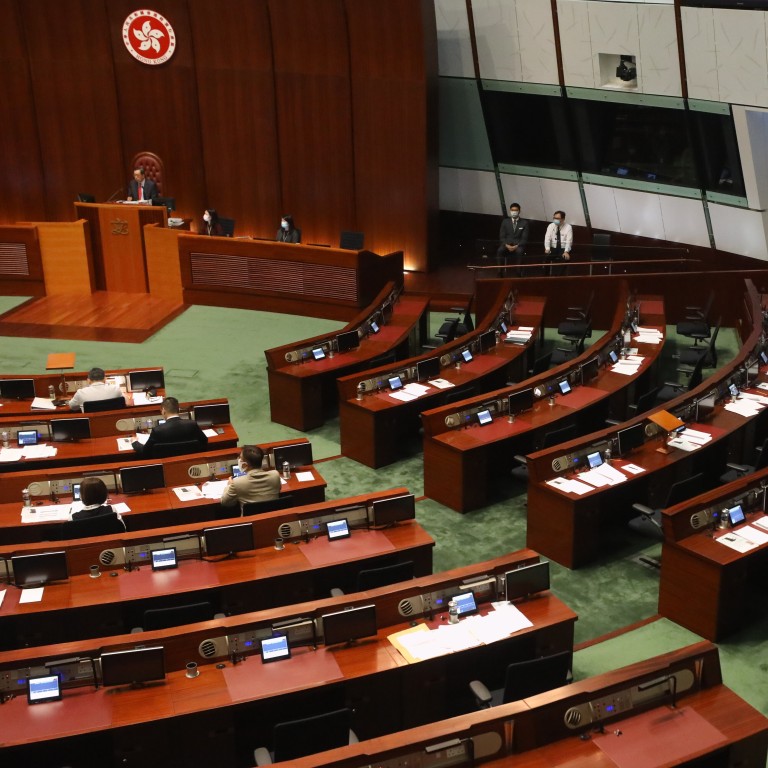
In wake of Legco disqualifications, Hong Kong’s opposition mulls an uncertain future
- Some analysts suggest that a Beijing resolution making it much easier to oust lawmakers has effectively rendered opposition participation in Legco meaningless
- Opposition members themselves are wondering how to push their agenda now that the ‘legislative front has collapsed’
Local political scholars and lawmakers said the bloc could find it difficult to remain relevant in an era where the central government was taking an increasingly hard line on dissenting views.
But some pan-democrats remained optimistic that their departure offered a chance to rethink their approach to taking part in Legco and to forge a relationship with a younger generation of political aspirants waiting in the wings.
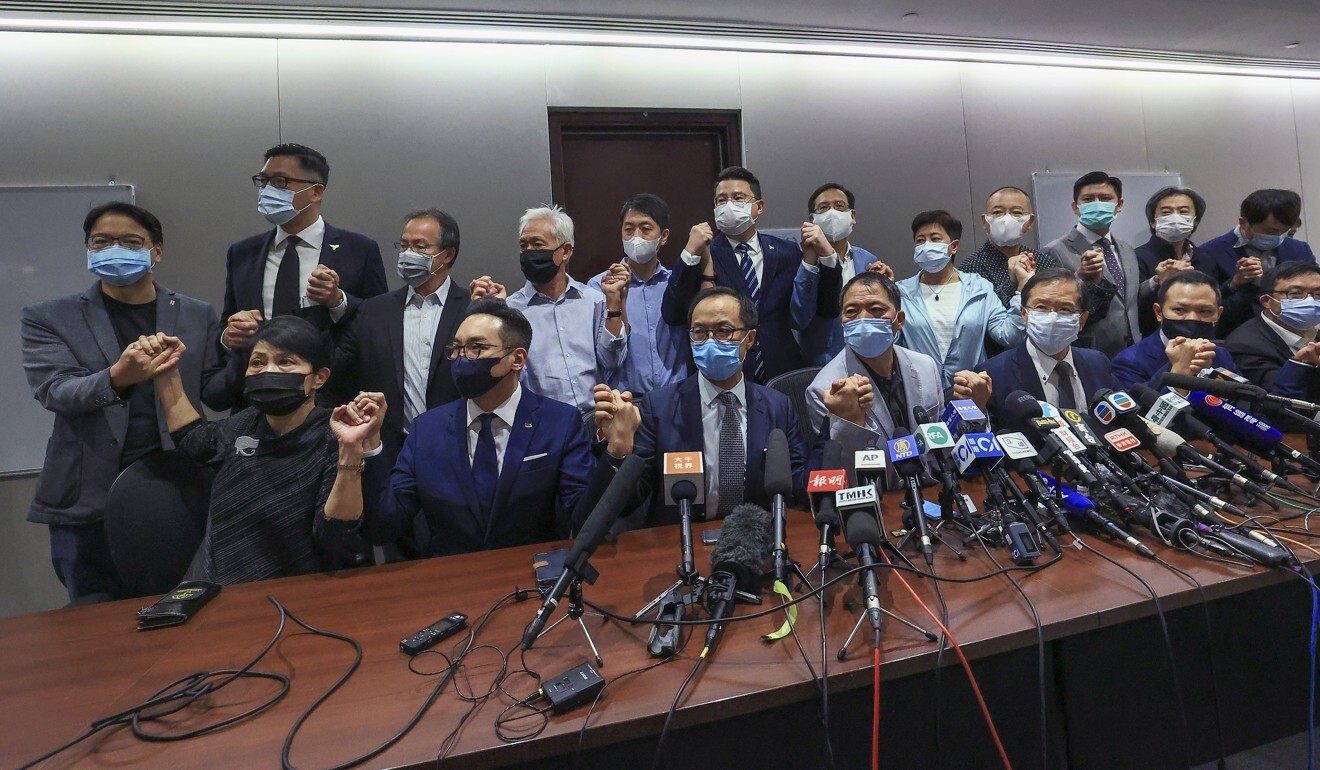
Under the resolution passed by the National People’s Congress Standing Committee (NPCSC), Hong Kong lawmakers will immediately lose their seats if they are deemed to have engaged in a range of acts, from endangering national security to dishonouring their pledge of allegiance and refusing to support China’s sovereignty over the city. The opposition bloc viewed the decision as a new red line.
Some analysts said they believed Beijing’s move made it meaningless for pan-democratic parties to remain in the legislature. The opposition, they added, would need to think hard about whether to participate in future elections, and what their options would be if they were barred from Legco in the long run.
“As disqualifications can be done so easily now, radicals, or even general pan-democrats, need to reconsider if they can ever run for elections again,” said Chinese University political scientist Dr Ma Ngok. “If yes, what will their plans be? Will they boycott?”
EU accuses China of dealing ‘severe blow’ to Hong Kong political freedoms
Ray Yep Kin-man, a political scientist at City University, agreed that little room remained in the current environment for lawmakers from traditional political parties to seek Legco seats.
“I believe there’s little chance for the 19 lawmakers to participate in elections again, and Beijing did not seem to target one person only – it targeted the whole political party,” Yep said.
“Beijing needs to mute all opposition voices. It showed that some political parties can hardly survive unless Beijing’s policy towards Hong Kong changes.”
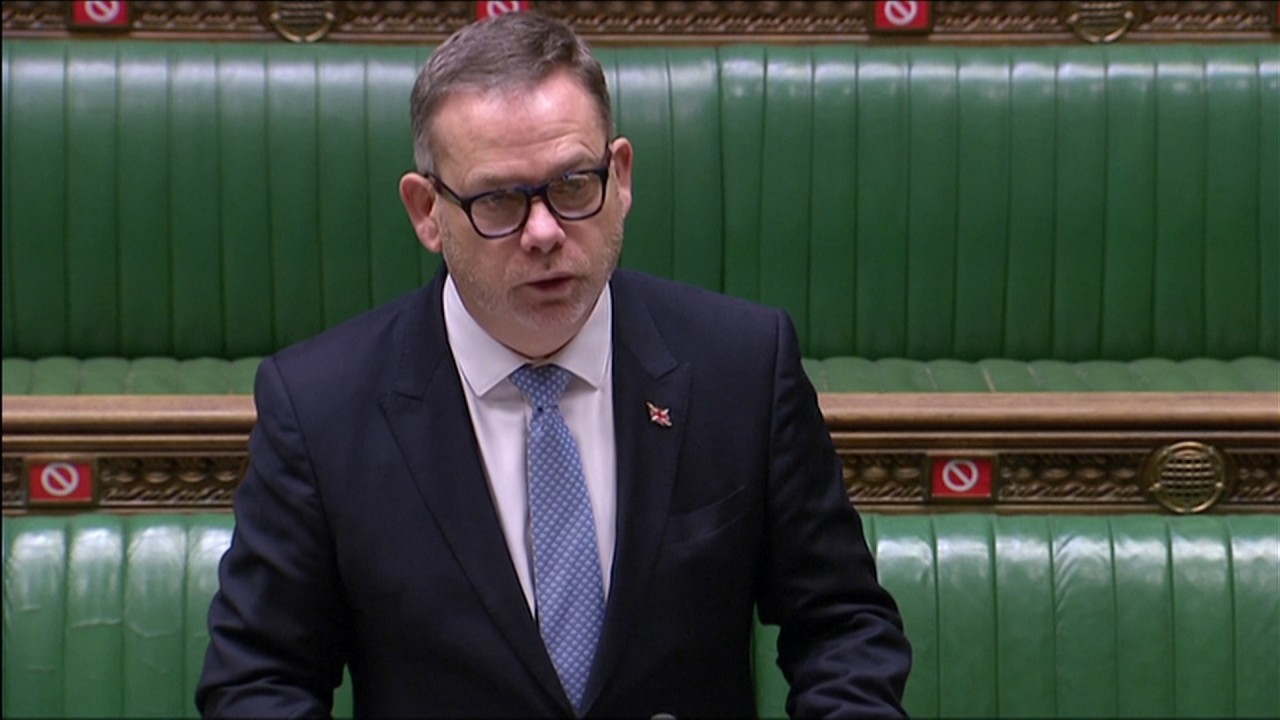
03:00
UK condemns China for breaching bilateral treaty after Hong Kong legislators disqualified
The resigning opposition figures will need to return their Legco and district offices, and could be stripped of other public posts that depend on their status as serving lawmakers. That could leave many short of the financial resources needed to continue pursuing their political agendas.
“I guess the key [for their survival is simply] ‘not to die’ and restore their power,” Yep said.
How will Beijing’s new resolution shape the future of Hong Kong politics?
Fernando Cheung Chiu-hung, who stepped down as the Labour Party’s sole lawmaker, admitted it would be difficult for his party to move forward.
“We have to seriously discuss what to do and whether the Labour Party should disband or not after our sole seat in the legislature is gone,” Cheung said.
Cheung, who served as a lawmaker in the 2004-08 term and was re-elected in 2012, co-founded the Labour Party with opposition stalwart Lee Cheuk-yan in December 2011. At its height, the party held four Legco seats from 2012 to 2016.
Apart from deciding whether to directly take part in elections again, Cheung said he believed the party needed to focus on maintaining the energy of civil society. He has expressed support for the younger generation of politicians.
“We still have seven seats in the district councils,” he said. “These young councillors are able to communicate with the radical forces. I believe in their abilities to think of something new.”
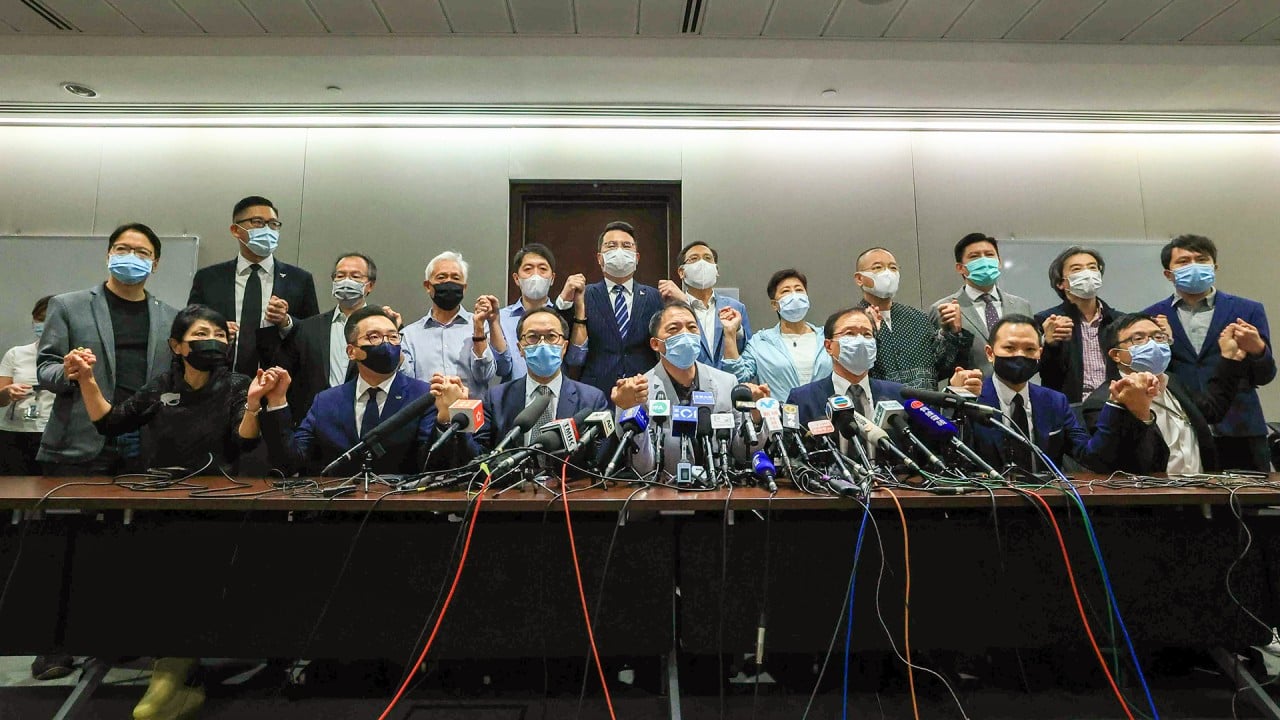
04:08
Hong Kong opposition lawmakers to resign en masse over Legislative Council disqualifications
Shiu Ka-chun, who resigned as the representative of the social welfare sector, admitted he was worried about whether the opposition camp could keep up the momentum it had built up over the past year.
“We were fighting on three fronts: in the streets, in the legislature and in the international community,” Shiu said. “Now the legislative front has collapsed, and we don’t know whether the government will reopen it by organising any election next year. But we have to fight the good fight on the two other fronts and maybe we will have a glimpse of hope.”
Former Democratic Party chairman Lee Wing-tat said he still had hope in the city’s electoral and political systems.
“I do not think we need a total retreat. We can see the next Legco elections as a referendum [for voters] to show the central government or the international community that most Hongkongers are still supporting democratic parties,” said the veteran activist, who led Hong Kong’s largest and oldest opposition party between 2004 and 2006.
Who initiated Beijing’s intervention in Legco? Lam’s call for help divides experts
The Democratic Party was founded in 1994 through a merger of the United Democrats of Hong Kong and the Meeting Point in a bid to safeguard Hong Kong’s freedoms after the British handed the city back to Chinese rule in 1997.
“It may be more difficult to run in elections and be effective in the legislature,” he said. “But we do not have to be obsessed with seats. We just have to prove we have the votes.”
Lee, who had discussed the issue of resignation with colleagues in recent months, suggested Beijing’s move could be viewed as the latest challenge to the party’s ability to remain resilient and down-to-earth.
“After leaving Legco, now we have to put any sense of pride aside and work closer with all our companions,” he said.
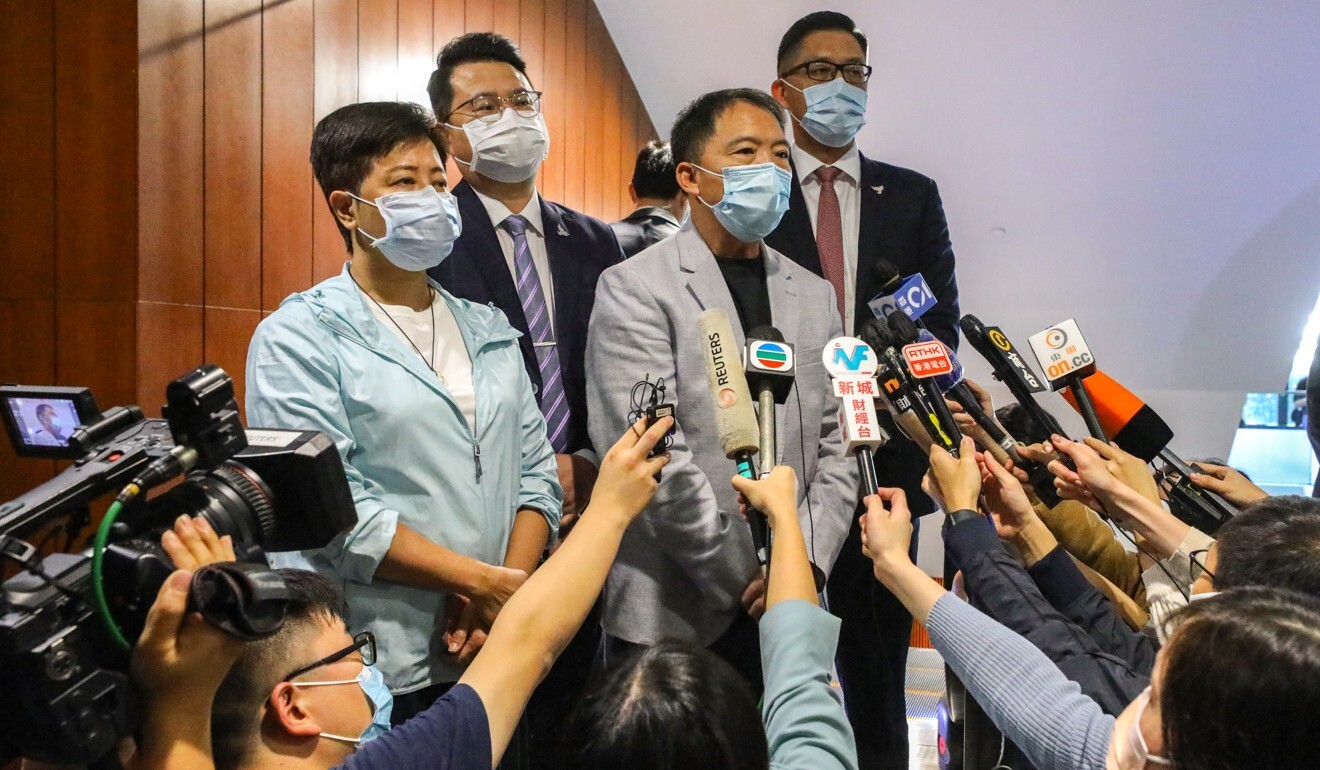
The bloc advocates a more confrontational approach toward the authorities, and some members had called for a collective boycott of Legco’s extended term, arguing it violated democratic principles.
After Legco oustings, Hong Kong’s opposition district councillors fear they’re next
Shum said it was too early to know what options were available given that the resolution had just passed.
“Past experience has shown these moves are hard to simply even discuss,” he said. “But we have to do something.”
Additional reporting by Tony Cheung

